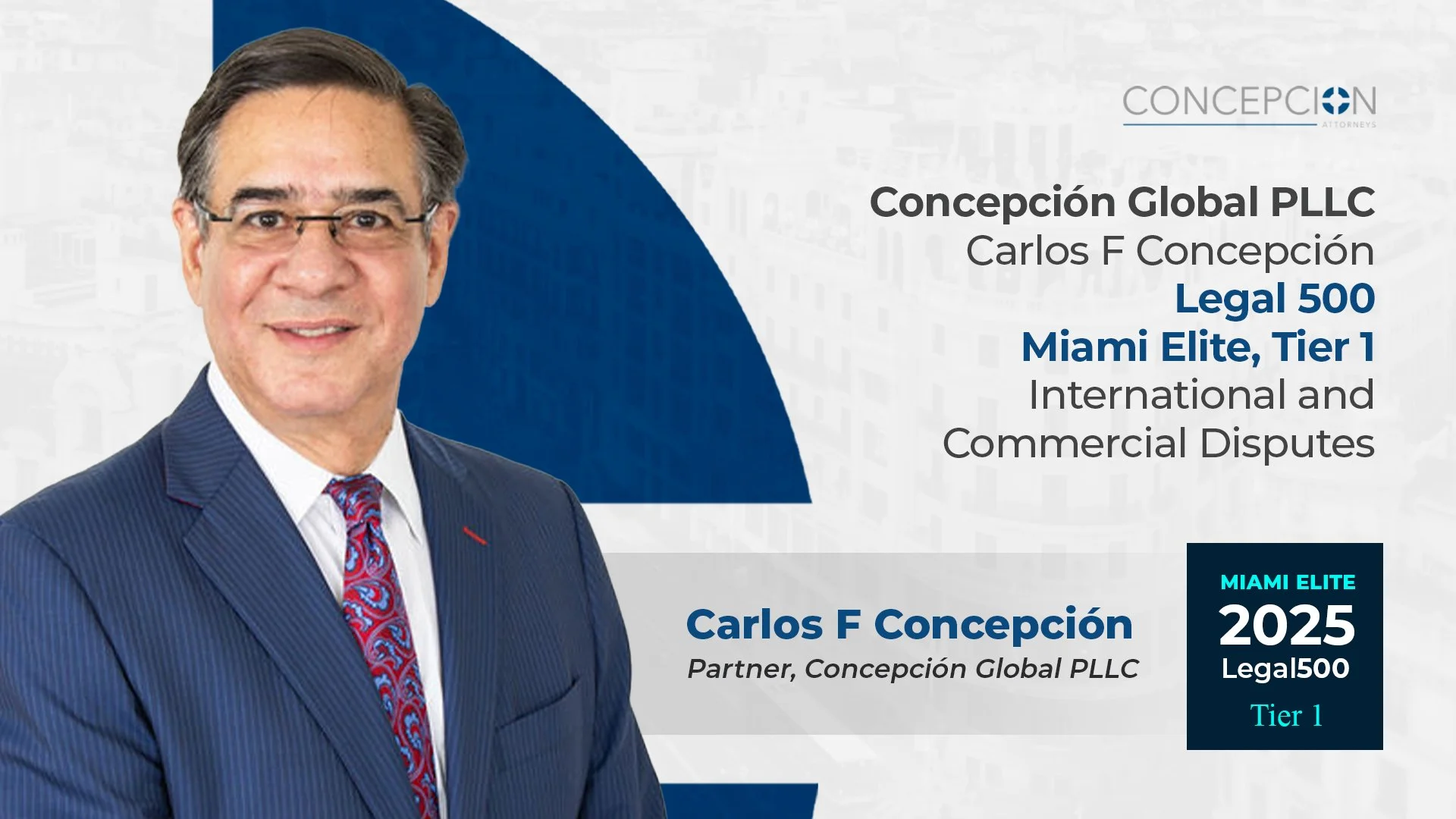
Carlos F. Concepción, FCIArb
Board Certified International Litigation and Arbitration
Partner
Phone: +1.305.444.6669 | Email: cfconcepcion@concepcionlaw.com
Locations: Miami, FL and Madrid, Spain
Carlos is a Partner in Concepcion Global PLLC, a law firm with offices in Miami and Madrid. He serves as an independent arbitrator, and an advocate and counselor for select clients. As an arbitrator, he focuses on institutional proceedings involving international and complex domestic commercial disputes, and investment-treaty matters administered by ICSID. As an advocate, he represents select clients on complex international and domestic business disputes, and parties in investor-state international treaty cases.
He has more than 35 years of experience in international disputes, especially in the intersection between common and civil law jurisdictions. Part of this experience includes serving leadership roles in some of the largest firms in the world and establishing and managing a boutique international disputes law firm in Miami, Florida.







